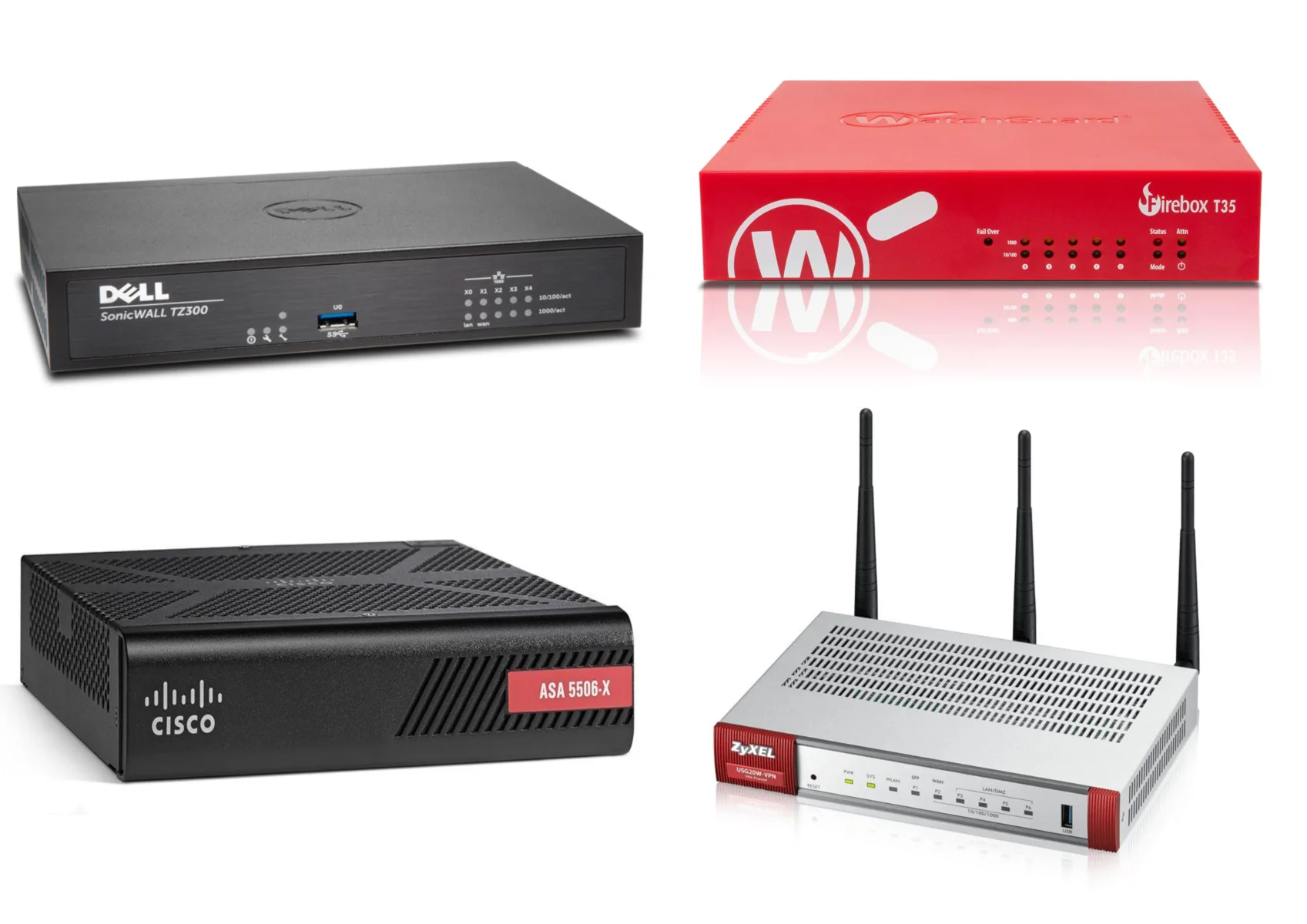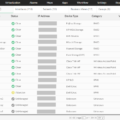Are you looking for an added layer of security for your home or business network? A hardware firewall may be the perfect solution.
A hardware firewall is a physical device that acts as a first line of defense against malicious software, hackers, and other cyber threats. It sits between your computer network and the internet, examining data entering and leaving the network for any suspicious activity.
The primary purpose of a hardware firewall is to protect your private network from unauthorized access. It can also be used to block certain websites or types of content and applications from being accessed by users on the network. Additionally, some firewall models offer features like intrusion detection and prevention, which can detect attempts to breach your system and take action accordingly.
When considering a hardware firewall, it’s important to choose one that meets your needs. Consider factors like how many devices will need to be connected to the firewall, what type of connection you’ll need (Wi-Fi or Ethernet), how much storage capacity (if any) is required, and whether any additional features are needed such as content filtering or malware protection.
Installing a hardware firewall is relatively straightforward; depending on the model you choose, it should take just a few minutes to complete the setup process. Once installed, you’ll need to configure the settings according to your specific requirements. Depending on the model you choose, this may involve creating rules about which users have access to which resources and setting up authentication methods such as passwords or certificates.
Overall, hardware firewalls are an effective way to secure your home or business network against cyber threats from outside sources. They can provide enhanced protection when used in conjunction with other security measures such as anti-virus software and secure passwords for all users on the network. If you’re looking for an added layer of security for your home or business network, consider investing in a quality hardware firewall today!

Examples of Hardware Firewalls
A hardware firewall example is a physical device that is placed between the network and the internet to act as a first line of defense against malicious attacks from outside sources. It is typically installed at the boundary between the private network and the public Internet. Commonly used hardware firewalls include routers, switches, and dedicated security appliances like firewalls.
Routers are one of the most common types of hardware firewalls. They are used to provide security by restricting access to certain parts of a network, filtering out traffic based on source or destination IP address, and blocking certain kinds of traffic. Routers can also be used to set up virtual private networks (VPNs) for secure remote access.
Switches are another type of hardware firewall that can be used to limit incoming and outgoing connections from a network. Switches can also be configured to block certain kinds of traffic, such as peer-to-peer file-sharing applications or websites hosting malicious content.
Dedicated security appliances such as firewalls can be used to provide more robust protection for a network by analyzing all incoming and outgoing traffic for malicious activity. These devices are typically more expensive than routers or switches but offer better protection against potential threats.
Hardware firewalls can also be combined with software firewalls such as antivirus software to provide an even higher level of protection against malware, viruses, and other cyber threats.
Types of Firewalls
The three types of firewalls are hardware, software, and cloud-based firewalls.
Hardware firewalls are physical devices that are installed directly onto a network or system in order to protect and filter traffic that is attempting to access the network or system. They can be used to block malicious traffic from entering the network or system, as well as regulate what type of traffic is allowed to pass through.
Software firewalls are installed onto a computer or server and act as a barrier between the computer/server and incoming network traffic. They can also be used to monitor outbound traffic from the computer/server in order to detect any malicious activities.
Cloud-based firewalls are firewall solutions hosted on cloud providers such as Amazon Web Services (AWS) or Microsoft Azure. These solutions provide an extra layer of security for all incoming and outgoing traffic using automated rules and configurations, enabling users to securely access their networks without having to deploy additional hardware solutions.
Do I Need a Hardware Firewall?
Whether or not you need a hardware firewall depends on your individual security needs. If you are a home user, the answer is usually no. Most modern routers have built-in firewalls that protect against outside threats, which may be sufficient for most people. For businesses, however, it is often recommended to use a dedicated hardware firewall in order to provide an extra layer of protection and control over network traffic. A hardware firewall can also help protect against malicious software and unauthorized access to sensitive data. Ultimately, the decision to install a hardware firewall should be based on your specific risk assessment and security requirements.
Different Types of Hardware Firewalls
Hardware firewalls can be divided into two main categories: packet-filtering firewalls and application-level gateway (or proxy) firewalls.
Packet-filtering firewalls are the most basic type of hardware firewall. They are used to restrict access to a network based on the source and destination IP address, port number, or protocol type. This type of firewall inspects each incoming and outgoing packet and determines whether it should be allowed or blocked based on the pre-defined rules.
Application-level gateway (or proxy) firewalls are more sophisticated than packet filters because they are able to analyze the contents of each packet in addition to the source and destination information. These firewalls can inspect traffic for malicious code as well as block connections from suspicious sources. They can also be used to control user access to certain websites, applications, or services.
Difference Between Hardware Firewall and Software Firewall
A hardware firewall is a physical device that sits between your computer and the internet, monitoring traffic and blocking malicious requests. It is installed on-premise and typically provides a layer of protection for all devices connected to the same network. On the other hand, a software firewall is a program that runs on a single device, usually your computer. It monitors network activity on that specific device and blocks malicious requests from accessing it. While both firewalls provide essential security features, hardware firewalls are more comprehensive as they protect all devices connected to the same network, whereas software firewalls only protect one device at a time.
Does a Hardware Firewall Impact Internet Speed?
Yes, hardware firewalls can slow down internet speeds. This is because they must process all data packets that come in and out of the network, which takes time and resources. Additionally, the complexity of the rules that are created to limit access to certain services can further hinder connection speeds. Firewall configurations may also be inefficiently set up, leading to an increase in latency and decreased throughput. To ensure optimal performance, it is important to regularly check firewall settings and adjust them accordingly to maximize speed while still maintaining security.
Conclusion
In conclusion, hardware firewalls are an important security measure that can protect your devices from malicious threats such as viruses, worms, and ransomware. They can be deployed in three different ways: hardware, software, and cloud-based firewalls. Hardware firewalls are particularly useful for businesses and organizations that have critical data and require advanced protection. For most home users, a dedicated hardware firewall is not necessary but can still provide additional protection.








